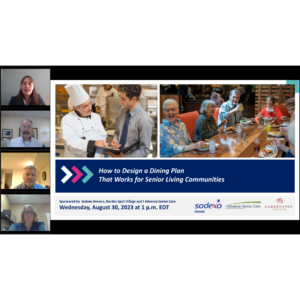Nursing home residents struggle with dehydration
Elderly hospital patients who are admitted from a nursing home are far more likely to be dehydrated than older adults who live elsewhere, according to a British study published in the Journal of the Royal Society of Medicine.
The study tracked patients who arrived at the hospital with high blood sodium levels, an indicator of serious dehydration. High sodium is a contributor to increased risk of death during hospitalization—dehydrated patients are five times more likely to die in the hospital than those who are properly hydrated.
The research team, which reviewed more than 21,600 UK-based hospital admissions of adults age 65 and over, found that those who came from nursing homes were five times more likely to have dangerous levels of dehydration than those who lived at home.
The study didn’t explore the reasons why nursing home residents drank less fluids, but other reports have shown that a melting pot of physical, social and emotional reasons may be at work. Older adults don’t sense thirst as accurately as younger people, and older bodies don’t conserve water as well, notes the Mayo Clinic. Medications, urinary tract problems, diabetes and dementia can all increase dehydration. Problems with swallowing, the need for assistance with drinking and the fear of “having an accident” can also result in less fluid intake.
Hopsitals can play a proactive role when receiving patients from nursing homes, looking for patterns that may indicate inadequate hydration protocols, the British study authors conclude. “We believe that when a hospital finds that more than a few people are admitted with a high sodium from an individual (nursing) home it should raise a warning flag,” Martin McKee of the London School of Hygiene and Tropical Medicine and the study’s lead author, noted in a Reuters article.

Pamela Tabar was editor-in-chief of I Advance Senior Care from 2013-2018. She has worked as a writer and editor for healthcare business media since 1998, including as News Editor of Healthcare Informatics. She has a master’s degree in journalism from Kent State University and a master’s degree in English from the University of York, England.
Related Articles
Topics: Clinical











